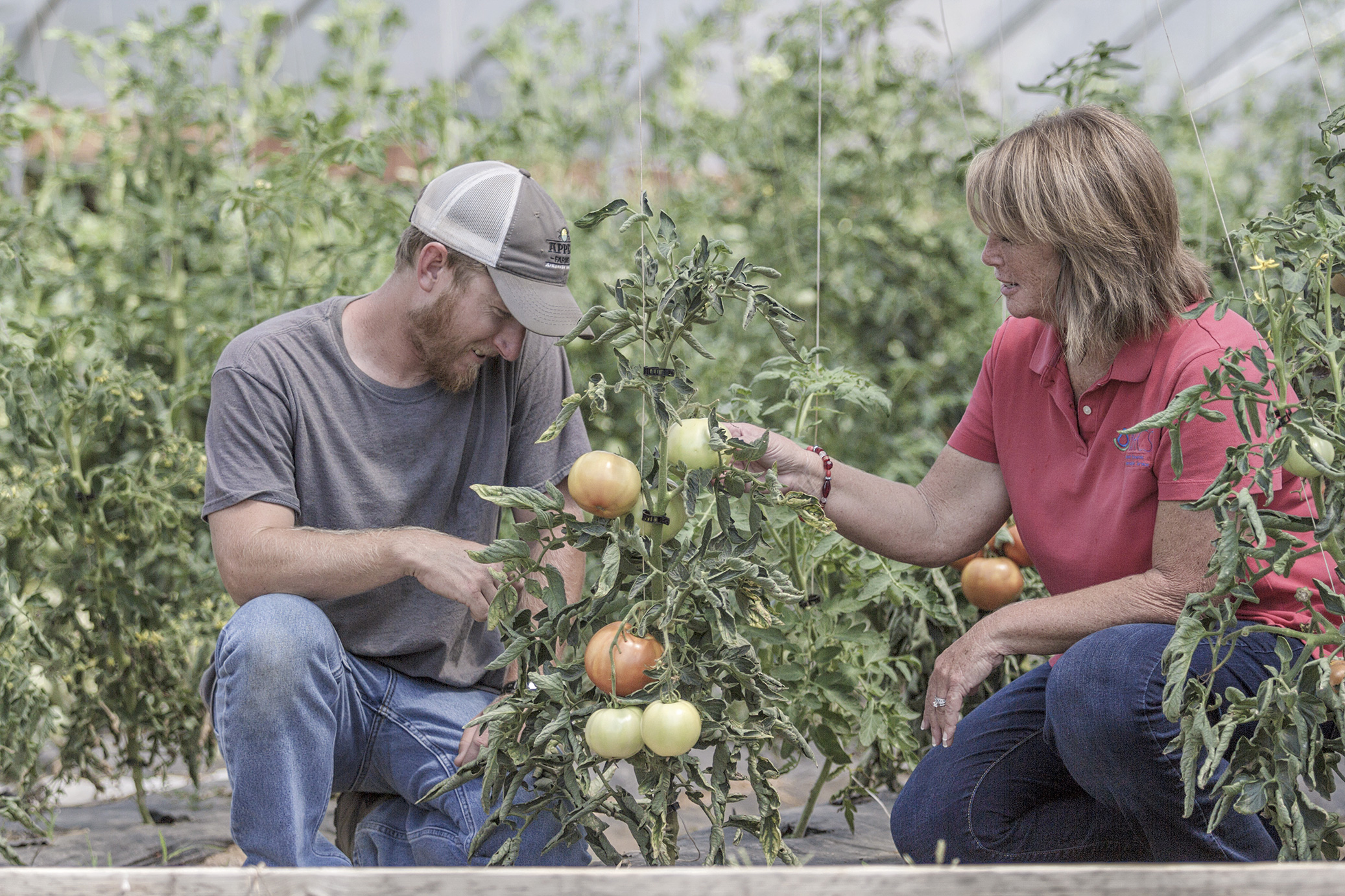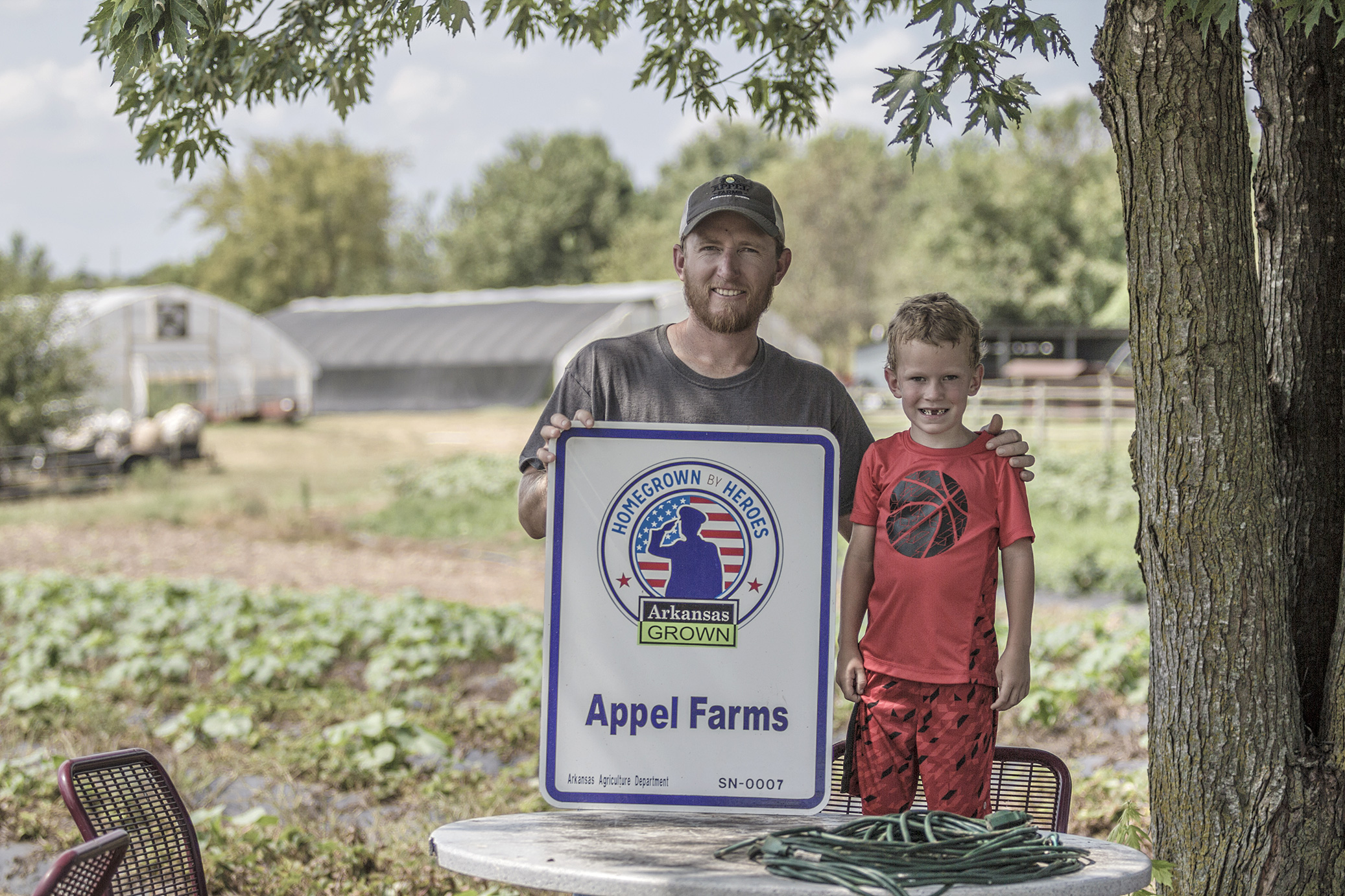From Corps to Crops

By Creston Shrum
Public Affairs Specialist
One Northwest Arkansas farmer credits his work ethic and experiences gained through 8 years in the U.S. Marine Corps as the catalyst for his new career.
Travis Appel’s military career included two deployments—one to Iraq and then with a Marine Expeditionary Unit with the Navy. His first four years of service were spent in artillery and he finished his career in reconnaissance.
“Farming is a nonstop endeavor just like the military,” Appel said. “After getting out of the military, I went to the University of Arkansas pursuing a horticulture degree. My goal was to be a greens keeper at a golf course.”
However, after an internship with a local farmer, who also worked at the university’s farm, he fell in love with farming.
He already had land outside of Springdale, Ark., where he began growing strawberries. His operation now includes pumpkins, tomatoes, peppers, zucchini, squash, okra, watermelons, cantaloupe and sweet onions.
The endeavor eventually led him to the USDA Natural Resources Conservation Service office in Washington County where he applied for financial assistance as a veteran farmer for two seasonal high tunnels. The first contract was signed in 2015 with another the following year.
“I grow strawberries through winter and tomatoes in the summer in the high tunnels,” the Marine sergeant said. “The first year I was able to grow strawberries all winter. We were picking strawberries from December to June. Without the high tunnel the season is April and May.”
He sells produce at the Springdale and Rodgers farmers markets and offers “pick-your-own” strawberries in the spring and a pumpkin patch in the fall. Other produce can also be purchased at the farm.
Appel has incorporated drip irrigation into his high tunnel system since he believes “it’s better for the plants and puts water where it is needed.” This controls erosion, helps with fertilizer application and saves him money on his water bill.
“We want to make sure veterans have something to come back to when they get out of the military,” said Rhonda Foster, Washington County district conservationist with NRCS. “We have a lot of people getting out of farming. It’s good to help beginning farmers install practices that benefit their operation.
“Mr. Appel is a beginning farmer and wants to do what is right with the farm,” she said. “He has inquired about soil health and micro-irrigation. He wants to make sure everything is done right so he can have this farm for generations to come,” she said.
“I highly encourage any veteran that is a farmer to visit NRCS. When I have questions about the high tunnel or erosion problem, I can contact NRCS for assistance,” Appel said.
The 2014 Farm Bill gave veterans of the U.S. armed service preference for NRCS conservation programs. Preference is given to eligible veteran farmers or ranchers applying for several types of conservation financial assistance through the Environmental Quality Incentives Program (EQIP) and the Conservation Stewardship Program (CSP).
For more information about NRCS programs for veterans, visit https://www.nrcs.usda.gov/wps/portal/nrcs/detail/national/programs/farmbill/?cid=stelprdb1256753 or visit your local county conservation district office.

Travis Appel in military uniform. Photo courtesy Travis Appel

Rhonda Foster, Washington County district conservationist inspects tomatoes in Travis Appel's high tunnel. Mr. Appel received his first high tunnel in 2015.

Travis Appel, pictured with his son Griffin, at his farm located in Springdale, Ark.

